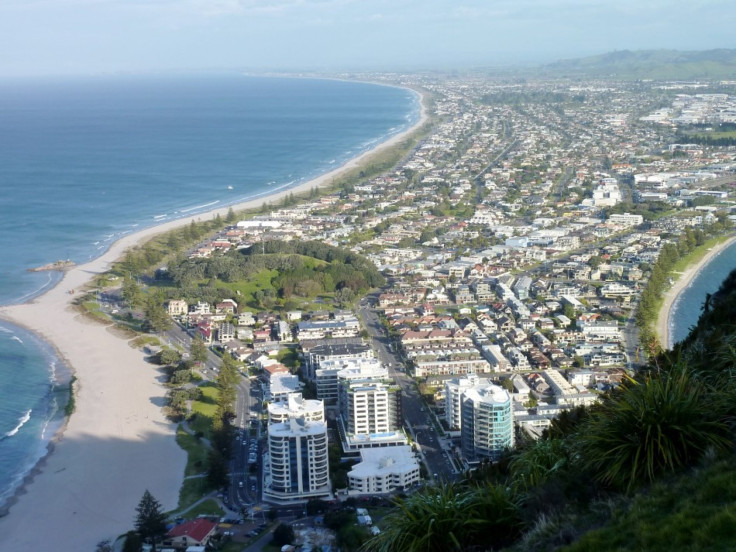New Zealand Oil Spill Beaches Reopen

New Zealand Oil Spill salvage crews finished pumping nearly all of the oil off Rena on Sunday -- a major development in the month-and-a-half long New Zealand oil spill.
Next up: Tauranga Mayor Stuart Crosby said Maritime New Zealand will lift the restricted access notices for nearly all of the affected coastline at 6 a.m. Wednesday.
This is the news we have all been waiting for, Crosby announced. The beaches and coastline are the backbone of our economic livelihood over the summer and we want all holidaymakers, event operators and locals to know that this means we are officially back in business.
Glenn Ormsby, General Manager of the Tauranga-based Tourism Bay of Plenty, echoed that sentiment.
The coast and the ocean are extremely important to tourism in the area, he told the International Business Times. A significant number of our tourism and recreational activities are marine-based and include operations such as dolphin watching, fishing tours and alike.
We've remained positive, Ormsby said, adding that Maritime NZ and an army of volunteers worked to ensure a speedy recovery so that the area's tourism operators would experience a minimal impact.
We applaud the passion and commitment our community has demonstrated to get these beaches open again, Ormsby remarked on Tuesday. We'd like to thank the thousands of people who volunteered their time to painstakingly clean up. This is the first time ever volunteers have been used to assist with the clean-up of an oil spill and we are all so proud of what the community is doing - our beaches reflect their dedication and commitment.
Though the beaches will reopen on Wednesday, officials cautioned that residual clean-up will be required for some time. Maritime NZ will continue to monitor, clean, and re-clean affected areas of the shoreline as needed, and the much lauded Operation Beach Clean volunteers will remain a constant presence throughout the summer.
The Bay of Plenty beaches like Mount Maunganui and Papamoa are some of New Zealand's finest. They've been closed since the 775-foot, Liberia-flagged ship ran aground on Astrolabe Reef on Oct. 5.
Why the vessel carrying 1,700 tons of oil hit the well-known reef in calm waters remains a mystery.
This week's milestone brought joy to many who rely on the Bay's beaches for their livelihood.
Tourism brings in an estimated $450 million to the Western Bay of Plenty economy each year and employs around 10% of the people. Southeast of Auckland, over 3.5 million visitors come to the Bay of Plenty region each year, mainly from Australia, the UK and the U.S.
Many feared the oil spill, New Zealand's worst maritime environmental disaster, would ruin the island nation's popular 100% Pure marketing campaign.
It's that very image that the nation uses to market itself to the world - and it seems to be working. New Zealand is one of the world's biggest tourism destinations, drawing over 2.5 million tourists in 2010. Tourism contributes nearly 9 percent of the nation's GDP and directly supports 5 percent of the total workforce.
So how does a nation whose award-winning 10-year campaign 100 Percent Pure New Zealand combat an environmental disaster of this magnitude? With another campaign.
Four Corners NZ reports that planning is underway for a tourism recovery campaign to promote the Bay of Plenty as a great holiday destination.
LoveBOP.co.nz offers webcams, and up to date information on the Rena oil spill, but reminds prospective visitors, Yes! We are OPEN.
It may take time, but officials are optimistic that tourism numbers will not plunge.
The image of our pristine beach and marine environment has been dealt a serious blow, and we need the community's help to restore it, Max Mason, Chief Executive of Tauranga's Chamber of Commerce, told The New Zealand Herald. Many local jobs and livelihoods depend on our visitors. In the same spirit as thousands of volunteers flocked to help with the beach cleanup, we now need everybody to tell the world we are clean and open for business.
© Copyright IBTimes 2024. All rights reserved.












